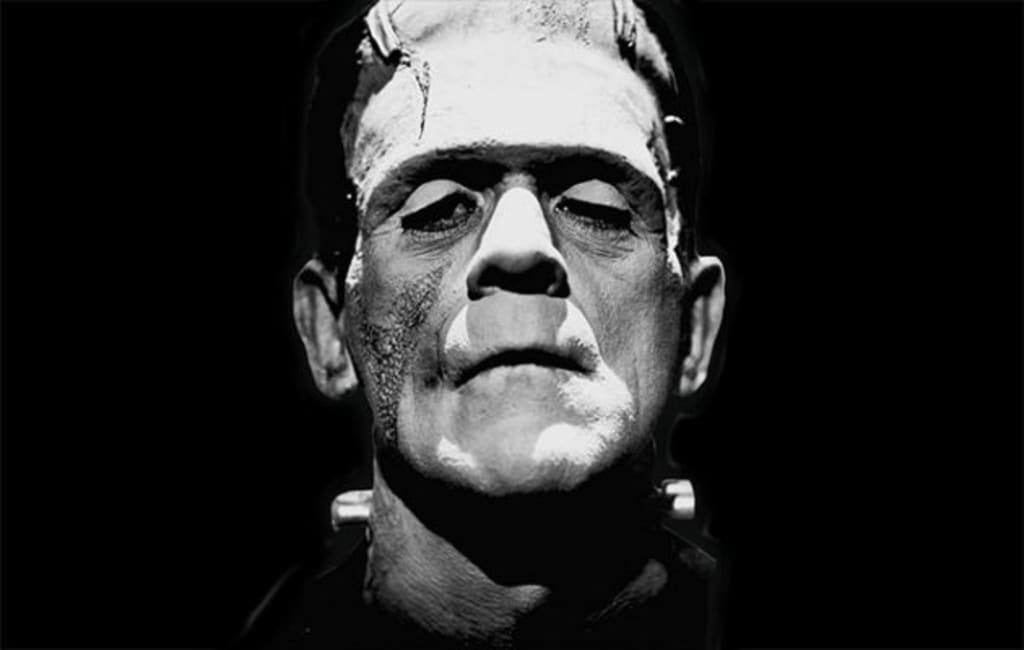The Ambiguous Mary Shelley: Friend or Foe
Essay on Mary Shelley's 'Frankenstein'

Over the course of two centuries Mary Shelley's Frankenstein has risen serious questions about science, life, morality and what makes a human. These questions can be argued and have been as to whether or not Shelly leaves us with satisfying answers by the end of the novel. By creating both Victor Frankenstein and the creature Shelley rises the most debated question of who is the true monster between the two. Lawrence Lipking however highlights the other side of the debate by mentioning the questions Shelley leaves us with such as “is Victor an idealistic hero or a destructive egotist? is the creature a natural man or an unnatural monster? what moral are we to draw from this strange story?” (Lipking 422-423). Lipking’s essay entitled Frankenstein, The True Story discusses that Shelley simply rises unheard of and profound questions especially for her time but leaves us with no satisfying answer for any of them. In contrast to Lipking I believe Shelley’s answers are ambiguous and are satisfying to an audience because of it.
Due to the fact that Mary Shelley wrote this novel almost exactly 200 years ago and the controversies of the novel are still being discussed in the twenty-first century is a testament to the importance of the ambiguity of the story. Had Shelley given us all the answers there would be nothing to debate against, nothing for a growing audience of didn’t generations to build upon. It is important for Shelley’s age to be mentioned in this context because she was only nineteen when the story was written. No nineteen year old, regardless of the time period, has all the answers to such thought provoking questions as the ones she laid out in Frankenstein. Frankly, no person in the 1800s aside from Shelley even laid out a foundation for science, medicine, life, death, good and evil to be questioned. Frankenstein is the very creator of the genre of science fiction because of those opened ended questions. Though Lipking brings about a clear and thoughtful rebuttal in his essay, I fear the bigger picture of Shelley’s intent is lost.
In Lipking’s essay he mentions that “when I ask my students whether the Creature is good or evil, they two are divided, not only as a group but individually; that is, almost everyone can be influenced to switch sides” (Lipking 422). Lipking uses this to conform his point of the audience not getting any clear answers from the novel and I would have to agree with that sentiment. The reason as to why the audience feels confused is because that is part of the author’s intent on getting the audience to be aware of the importance weighted on what we consider to be good and what we consider to be evil. Readers can view Victor Frankenstein as a hero or a villain because he is character that can glide from one end of the spectrum to the other based on how the audience sees him. If a reader focus on his scientific genius in being able to create life without coitus than that person’s answer to the question is Victor Frankenstein a hero or a villain; could be hero. However, if the reader focused on the fact that he abandoned the very creation that made him a scientific genius could sway the viewpoint in the opposite direction. This is a part of Shelly’s genius in storytelling; being able to question what is good and what is evil in a time of christian dominates over Europe is ground breaking.
Victor Frankenstein is characterized as a man who wishes to find the answers to questions no one has ever asked before; questions no one ever thought to ask. He is able to give answers to those questions about life and creation through scientific knowledge and technology. In doing so he changes the game of science and faith all together; readers can view this as a heroic act of change and believe him to be the victim of the Creature’s acts of evil. However, the Creature is a result of the scientific discovery Frankenstein made which created his inhuman appearance of mismatched body parts sewn together. The very disturbing appearance are the Creature itself coming to life was enough to have his own creator abandon him. Just as any child would feel, the Creature becomes alone and has to discover human feelings and emotions and work through them without any guidance from his creator. This careless behavior on Frankenstein's part can result in the reader becoming more sympathetic to the Creature and give reason behind the actions that follow after his creation. Not only does these behaviors of the characters affect the readers view on was is good and evil; but also effects their view on what makes a human a human. Another important question that Shelly creates with this novel.
In the very beginning of Frankenstein there is a Preface where Shelly writes “I am by no means indifferent to the manner in which whatever moral tendencies exist in the sentiments or characters it contains shall affect the reader” (Shelly 5-6). This quote foreshadows in a way the inevitable confused reaction from the audience. It shows that Shelly indeed knew what would come from creating a story with controversial topics. Another quote from the novel that introduced the question of morality between the Creature and Frankenstein was “I am malicious because I am miserable. You, my creator, would tear me to pieces, and triumph; remember that, and tell me why I should pity man more than he pities me?” (173). This quote emphasizes the view of having sympathy for the Creature and understanding the reason behind his terrifying actions. If Frankenstein had shown care for the Creature instead of being horrified by his appearance, which he created, than those actions could have been prevented.
The true essence of Lipking’s argument is shown in the very beginning of his essay when he writes “The object of the debate is not to prove or refute or win but only to take part, translating the novel into one's own discourse” (Lipking 316). I agree with this statement because it does show after so much time has passed since this novel was written that we are still able to debate the important questions that Shelley originally asked. Regardless of point of view we are still discussing the story and have a shared appreciation of the novel which tends to take precedence which side of the debate you fall on. That is another reason as to why the questions we are often puzzled with after reading Frankenstein need to remain and always will.
About the Creator
Bridget Barnes
Hi, my name is Bridget Barnes. Hoping this is a stepping stone to making my passion for writing a career.Feel free to leave a tip if you enjoy the story as much I enjoyed writing.






Comments
There are no comments for this story
Be the first to respond and start the conversation.